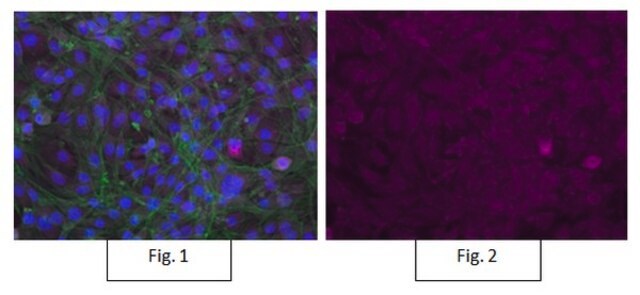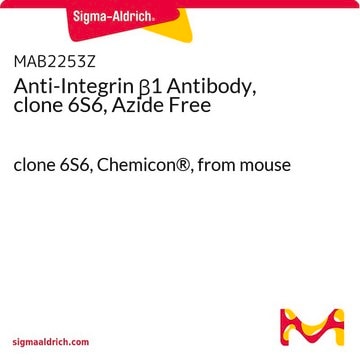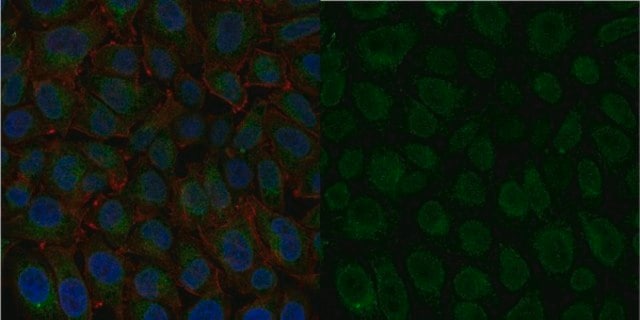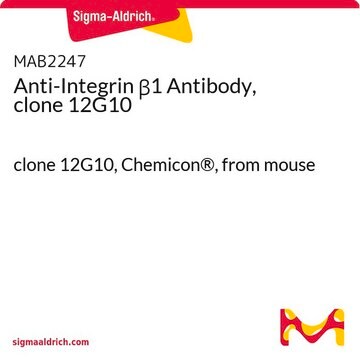MAB2259Z
Anti-Integrin β1 Antibody, activated, clone B44, azide free
clone B44, Chemicon®, from mouse
Synonym(s):
Ligand-inducedBindingSite, LIBS, CLIBS, MAB2259
About This Item
Recommended Products
biological source
mouse
Quality Level
antibody form
purified immunoglobulin
antibody product type
primary antibodies
clone
B44, monoclonal
species reactivity
human
manufacturer/tradename
Chemicon®
technique(s)
cell culture | mammalian: suitable
flow cytometry: suitable
immunohistochemistry: suitable
immunoprecipitation (IP): suitable
western blot: suitable
isotype
IgG1
NCBI accession no.
UniProt accession no.
shipped in
dry ice
target post-translational modification
unmodified
Gene Information
human ... ITGB1(3688)
Specificity
Application
Western blot: 10-15 μg/mL
Flow Cytometry: 10-15 μg/mL
Immunohistochemistry
Stimulation of (1-mediated adhesion: 10-20 μg/mL.
Optimal working dilutions must be determined by end user.
Target description
Physical form
Other Notes
Legal Information
Not finding the right product?
Try our Product Selector Tool.
recommended
Storage Class Code
12 - Non Combustible Liquids
WGK
WGK 2
Flash Point(F)
Not applicable
Flash Point(C)
Not applicable
Certificates of Analysis (COA)
Search for Certificates of Analysis (COA) by entering the products Lot/Batch Number. Lot and Batch Numbers can be found on a product’s label following the words ‘Lot’ or ‘Batch’.
Already Own This Product?
Find documentation for the products that you have recently purchased in the Document Library.
Our team of scientists has experience in all areas of research including Life Science, Material Science, Chemical Synthesis, Chromatography, Analytical and many others.
Contact Technical Service








